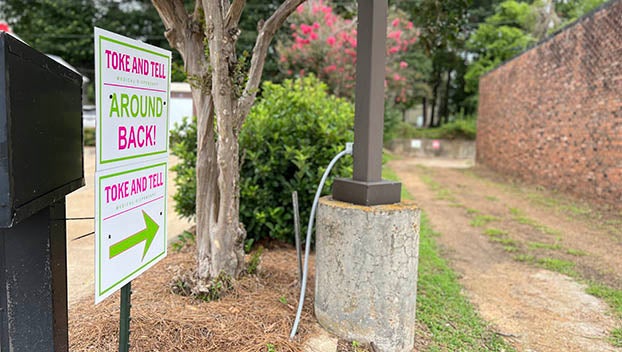Mandela’s impact obvious upon visit
Published 12:08 am Saturday, December 7, 2013
NATCHEZ — A Natchez resident who visited Nelson Mandela’s South Africa reflected this week on the legacy he left behind.
Dr. Frederica Todd spent three weeks in South Africa in 1999 to help build 10 new schools there.
During the years of apartheid — the systematic racial segregation pushed on the country’s black majority by a white minority ruling class — it was difficult to deliver educational materials to the impoverished areas of the country.
After the practice of official oppression ended and a new government was elected, Todd was able to go with The Links on an educational mission.
Even though apartheid had ended several years prior, the legacy of haves and have-nots lingered, and Todd said she saw many poor people living in shanty towns without water and power only a short distance away from members of the former ruling class living in mansions.
“I had heard about how unequal things were there, but it was worse than I ever imagined,” Todd said.
Mandela was the first black elected president of South Africa, and had spent 27 years in prison for his opposition — which was sometimes armed — against the apartheid government. He was the face of the anti-apartheid movement, and Todd said he was so beloved in part because he was a symbol of that effort.
“I understand why he meant so much to the world when you go to South Africa and realize how much was taken from those people,” she said.
“In the United States, the fight was different — black people were taken from there and brought here, but for those people it was their country that was taken from them, and for those people as long as they could look and know he was still alive in that jail, there was still hope.”
During her visit, Todd visited the tiny cell in which Mandela was detained for decades and met former prisoners who lived there with him. She also met Mandela’s former wife, Winnie, briefly.
“The man who was the curator at the prison, which is now a museum, told us about (Mandela’s) spirit, his refusal to give up,” she said. “I thought it was awful there. It was unbelievable.”
Mandela was freed in 1990, the year negotiations to end apartheid began, and his election in 1994 seemed almost fated, Todd said.
“There had been such a void of black people holding leadership positions there that the United Nations was having to send people in to train them how to be leaders,” she said.
“It was a place that needed leadership, and he was the right person at the right time.
“I feel he probably knew he was the person to lead, the chosen one. He wasn’t vindictive, he was a caring person and that was what was important.”





